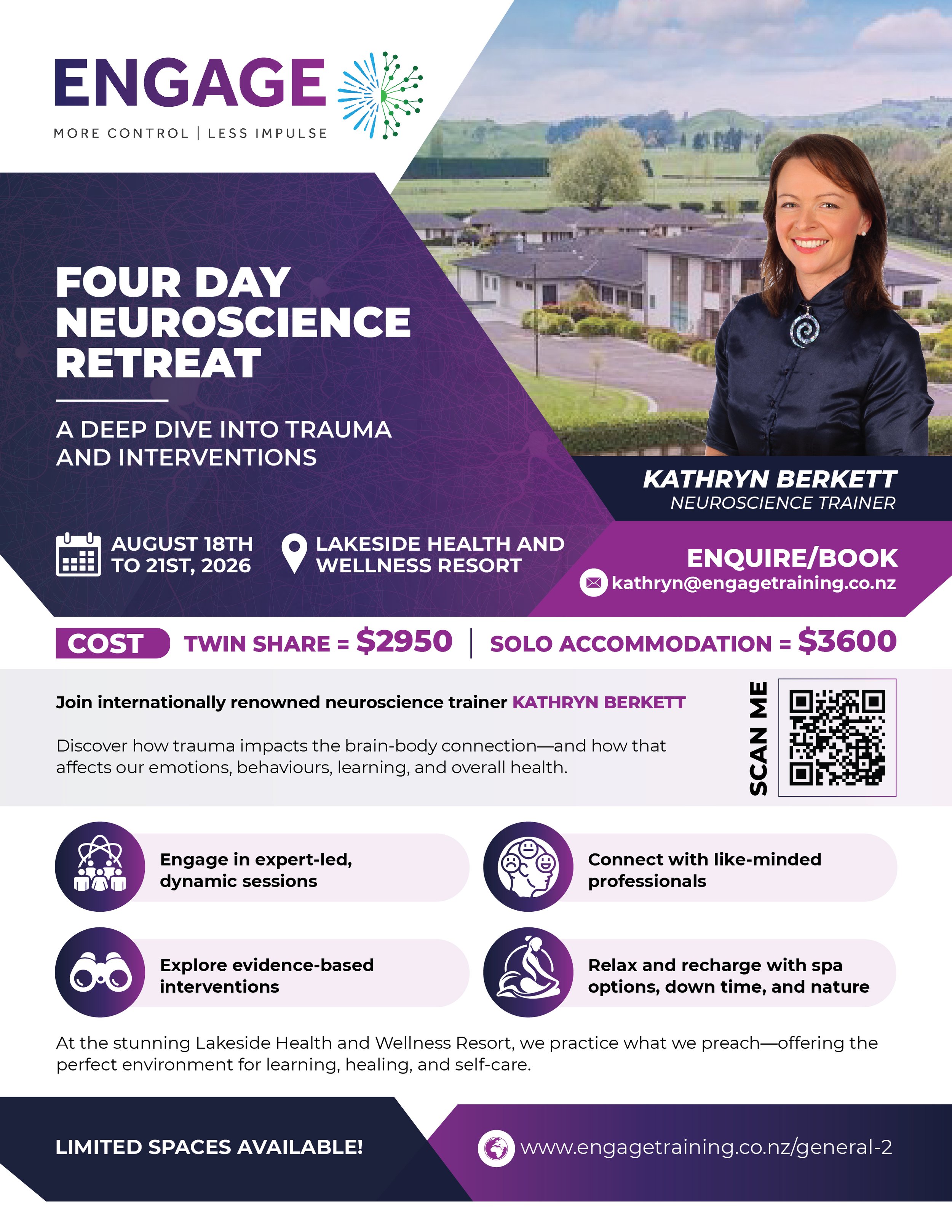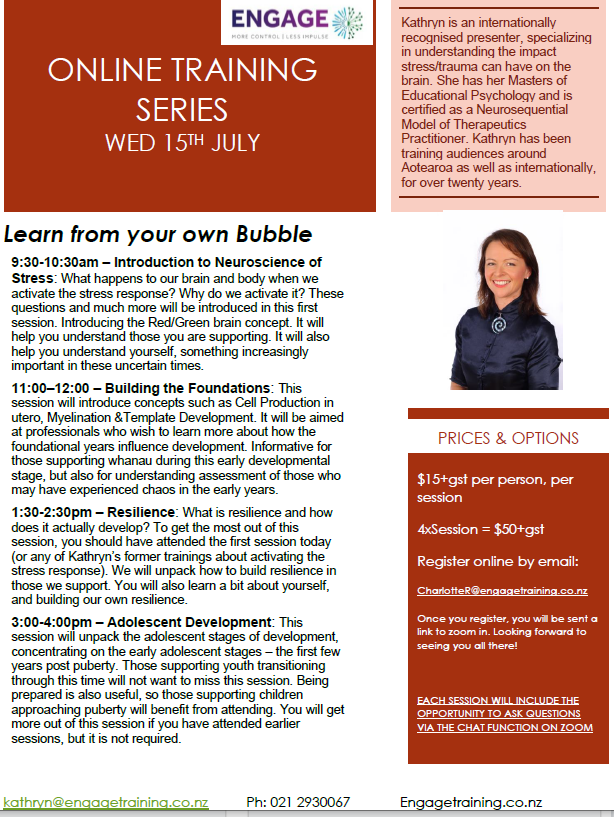BRINGING COMPLEX NEUROSCIENCE INFORMATION TO EVERYDAY SPACES
ENGAGE delivers the latest neuroscience information to you, so you can be more informed, more aware, more engaged in what you do.
-

Training
ENGAGE tailor neuroscience training to your needs, from short sessions to in-depth, interactive workshops.
-

Free Mini-Lessons
A series of Mini-Lessons. Information to start conversations in your workplace, home, or just with yourself.
-

Online
ENGAGE offer flexible online neuroscience training that can be tailored to your organisation or subject matter.
-

Keynotes
ENGAGE delivers compelling keynotes that energise audiences, spark discussions and leave attendees inspired.
How we can help
The following subjects can be individualised or combined to create a training. Full day, keynote, online or 90min sessions can all be tailored to your needs, using these subjects as a basis.
TRAUMA IMPACT ON BEHAVIOUR:
For Social Workers / Educators / Psychologists
Understanding the neuroscience and the physiology around the effects of trauma can help us operate in ways that create the space for positive behaviour and healing.
DEALING WITH ANXIETY:
Corporates / Educators / Mental Health Workers
Unpack the neuroscience of anxiety to differentiate normal stress from clinical issues, improving our ability to manage and support ourselves and others.
BURNOUT & FATIGUE:
Corporates / Keynotes / Mental Health Workers
Understanding the science behind emotional wellbeing and its physical impacts enables us to develop effective coping strategies for ourselves and others.
ADOLOSCENT BRAIN CHANGES:
Educators / Community Sessions
Explore adolescent brain changes to better understand youth behavior and develop effective support
strategies.
THE IMPACT OF DEVICE USE ON THE BRAIN:
Schools / Early Childhood Educators
Learn how devices impact brain development, especially in early years and adolescence. This will help you make more informed choices about technology use.
BIOLOGICALLY RESPECTFUL ENVIRONMENTS:
Educators / Police / Corporations
We know that stress can physically impact development. Therefore, we need to create environments that create safety, and the foster the development of emotional skills and positive behaviour.



















